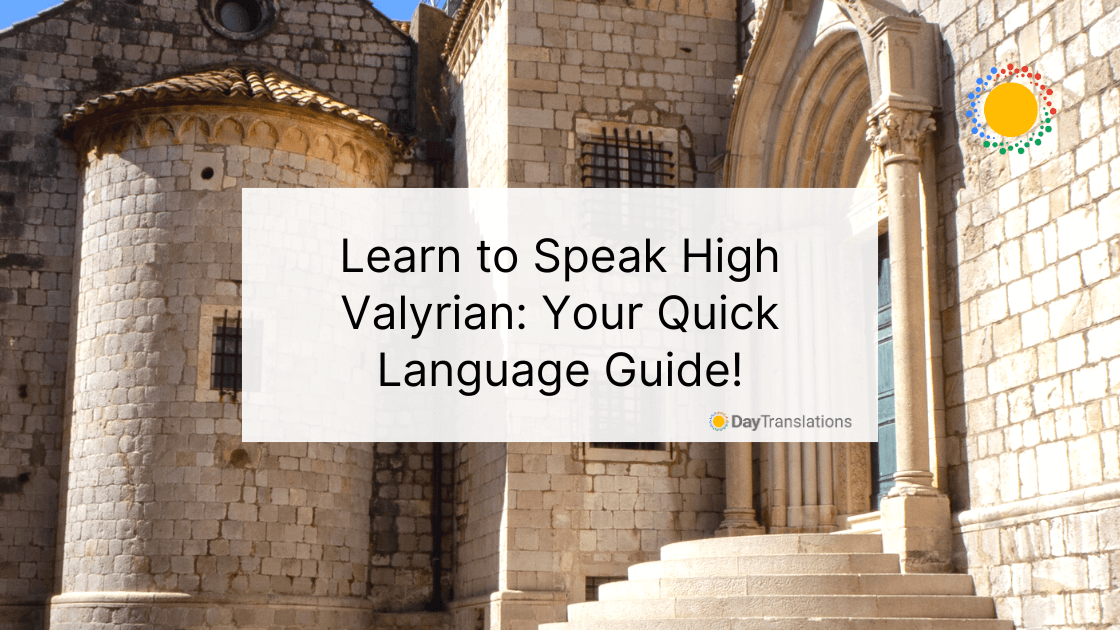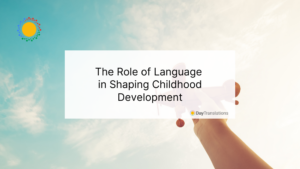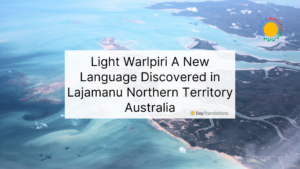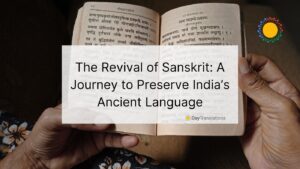Avid fans of the hit TV series Game of Thrones would be very familiar with the different languages used in the show, such as High Valyrian and Dothraki. High Valyrian is a family of languages that were created for the TV adaptation of the George R. R. Martin series of novels titled “A Song of Ice and Fire.”
Just like the Dothraki language, the High Valyrian languages were mentioned in the novels although they were not fully developed. HBO also wanted the language family created for realism, and requested David J. Peterson to construct it as well. Unlike Dothraki, High Valyrian has two derivatives: Astapori Valyrian and Meereenese Valyrian.
What is High Valyrian?
If you are only mildly interested in the Game of Thrones series, you might want to know that High Valyrian is the language spoken in Essos, the continent in the east where the previous Valyrian Freehold was situated.
The Valyrians were the most dominant population in Essos, where they occupied much of the land and as the most prominent group; they were like rulers or conquerors, forcing the other inhabitants to speak Valyrian.
Their story has a parallel with real-life conquerors and dominant races. They ruled for thousands of years, but they can be brought to their doom when other more dominant races with bigger forces dare to engage in wars with them, with the land and the people the ultimate price. In the same sense, the language they speak becomes obscured by a new language.
When the Valyrians were lost in the wars, their language, High Valyrian became relegated as a language used by scholars in Westeros and Essos for chronicling their stories. Think of High Valyrian as Sanskrit, an ancient language that is still used today by followers of Buddhism and Hinduism for their chants and hymns and as a ritual and ceremonial language, respectively.
Difference Between High and Low Valyrian
For fans of Game of Thrones, High Valyrian is the language the Red Priests use to communicate among themselves. In the TV series, speakers of High Valyrian include Daenerys Targaryen, Varys, Tyrion Lannister, Thoros, Melisandre and Missandei.
While nobles speak High Valyrian, there is also Low Valyrian in the Game of Thrones. Speakers are descendants of the people who used to be colonies of the Valyrian Empire. Low Valyrian is sometimes called Bastard Valyrian that is composed of different dialects. As such, some of the variants are not mutually intelligible, because the Nine Free Cities were able to develop their own versions of Bastard Valyrian. Thus, there are nine dialects, including Volantene, Qohorik, Pentoshi, Tyroshi, Norvoshi, Myrish, Braavosi, Lysene and Lorathi. Even those living at Slaver’s Bay have their own variant of Low Valyrian.
The Creation of High Valyrian
In the fantasy book series, A Song of Ice and Fire, High Valyrian occupies a cultural position just like Latin during the medieval period in Europe. In the novels, the language is no longer a common language used by the inhabitants in their daily lives. It became a language of education and learning used only by the nobles living in Westeros and Essos.
Because of this, only a few words in High Valyrian were included in the books. The number was smaller than the Dothraki words the author used.
HBO decided to ask David J. Peterson, the creator of the Dothraki language to construct High Valyrian as well. Peterson supplied the author with more Valyrian translations for the succeeding novels that are yet to be published.
The conglanger had to make an exception to the word dracarys that Martin initially used in the novels as the term of dragon. He said that it was too close to draco, the term that means dragon in Latin. Since Latin is not one of the languages used by Peterson as reference when he constructed High Valyrian, he considered it as a unique linguistic unit. For the High Valyrian that de developed, he used zaldrīzes as the word for dragon.
Like Dothraki, High Valyrian does not have a written form. However, Peterson said that if there is a need, he was thinking of using hieroglyphics that are similar to the writing system of Ancient Egypt. In fact, in one of the scenes in a third season episode, one of the characters wrote High Valyrian with Latin alphabets. Peterson said that it was not necessary to invent a new writing system in High Valyrian because that was just a one-off scene.
High Valyrian Grammar
More than 700 words have been created for the language, and the language is evolving. The language has grammatical numbers, such as singular, plural, collective and paucal. Example:
- Vala – man (singular)
- Vali – men (plural)
- Valun – some men (paucal)
- Valar – all men (collective)
High Valyrian contains eight cases for its nouns, namely, nominative, accusative, dative, genitive, vocative, locative, comitative and instrumental.
Unlike living languages, this language consists of four genders, although these are not biological but rather environmental classes, including lunar class (hūrenkon qogror), solar class (vēzenkon qogror), terrestrial class (tegōñor qogror) and aquatic class (embōñor qogror). However, Peterson said that you identify the type of class by the ending. For humans, most of the words end in –ys or –a, while plants and food mostly end in –on.
Verb conjugations are much simpler, using only singular and plural forms.
Learning High Valyrian
Peterson created High Valyrian and Dothraki languages to mimic organic languages therefore it is possible for people to learn these constructed languages. A language-learning app is available to help fans learn High Valyrian in their own time and pace. The app is able to run on devices powered by Android and iOS operating systems.
If you do not have time to download a language-learning app, here are some phrases that you should know.
- Hello (Rytsas)
- Yes (Kessa)
- No (Daor) – Also used as not. For example, a dragon is not a slave translates to zaldrīzes buzdari iksos daor
- Thank you (Kirimvose) – First High Valyrian word viewers saw on screen!
- Please or perhaps (Kostilus)
- Goodbye (Geros ilas)
- All men must die (Valar morghulis)
- All men must serve (Valar dohaeris)
- An Unsullied (Dovaogēdy)
- Halt as a command or order (Kelītīs)
- Dragon-fire (Dracarys)
- Mother of Dragons (Muña Zaldrizoti)
- Valyrian is my mother tongue (Valyrio muño ēngos ñuhys issa)
- What do we say to death? (Skoros morghot vestri?)
- Not today (Tubī daor)
- The night is dark and full of terrors (Bantis zōbrie issa se ossȳngnoti lēdys)
- I love you (Avy jorrāelan)
- And now, we ride! (Sesīr kipi!)
- When you play the game of thrones, you win or you die. (Skorī dēmalȳti tymptir tymis, ērinis iā morghūlis).
Do you want to know more? You can learn more from this video.
Starter Words
If you are an avid fan and just starting to learn the language, here are some words to help you build your vocabulary.
- Woman (ābra)
- Life (ābrar)
- Wife (ābrazȳrys)
- Female (ābrenka)
- Smooth, sleek (adere)
- Quickly, soon (aderī)
- Lord, master (āeksio)
- Blood of the dragon (zaldrīzo ānogar)
- You (ao)
- Summit (baes)
- Cat (kēli)
- To bake (bāngagon)
- Long night (bantāzma)
- Night (bantis)
- Head (bartos)
- Trout (bēgor)
- Chain (belmon)
- Slave driver (belmurtys)
- Sow (beqes) (female pig)
- Happiness, fortune or luck (biarves)
- Mountain (blēnon)
- Name (brōzi)
- Small (byka)
- To free (dāeremagon)
- Freedom (dāerves)
- Free (dāez)
- Nowhere (daoriot)
- Queen (dāria)
- No one (daorys)
- Night sky (ēbrion)
- High (eglie )
- Blade, sword (egros)
- First (ēlī)
- Sea (embar)
- Good, tasty (ēngenka)
- Victory (ērinnon)
- Hammer (galry)
- Silver (gēlion)
- Money (gēlior)
- Bread (havon)
Peterson created a Valyrian learning course through a collaboration with a language-learning site. The pace is almost similar to learning a living language. Students will start with simple words. Through exercises and questions, the learner will understand the mechanics of Valyrian. It presents challenges while still maintaining a sense of fun so learners will not feel intimidated. In the beginning, there will be plenty of lessons on nouns, adjectives and verbs and lessons on how to form sentences.
Ensuring Accuracy of Your Translation Projects
Dothraki and Valyrian are fictional languages. However, when it comes to the major living languages, you need professional help to ensure that your communication requirements are met. Day Translations, Inc. is a professional translation services company with offices in major cities worldwide. With more than 10 years of experience serving the translation needs of small and large businesses in many parts of the world, we have the knowledge and expertise to handle any type of translation projects. We work only with native speakers to ensure that you get the most accurate translation possible. They live in-country, which means they have a deep understanding of the nuances of the language and the culture of the target locations.
Trust the human translators of Day Translations, to deliver only the highest quality and professional translation service you could ever wish for. We are open 24/7, every single day of the year, so give us a call at 1-800-969-6853 or send us an email at Contact us at your convenience. Our customer service representatives are ready to provide assistance.












Sorry, the comment form is closed at this time.